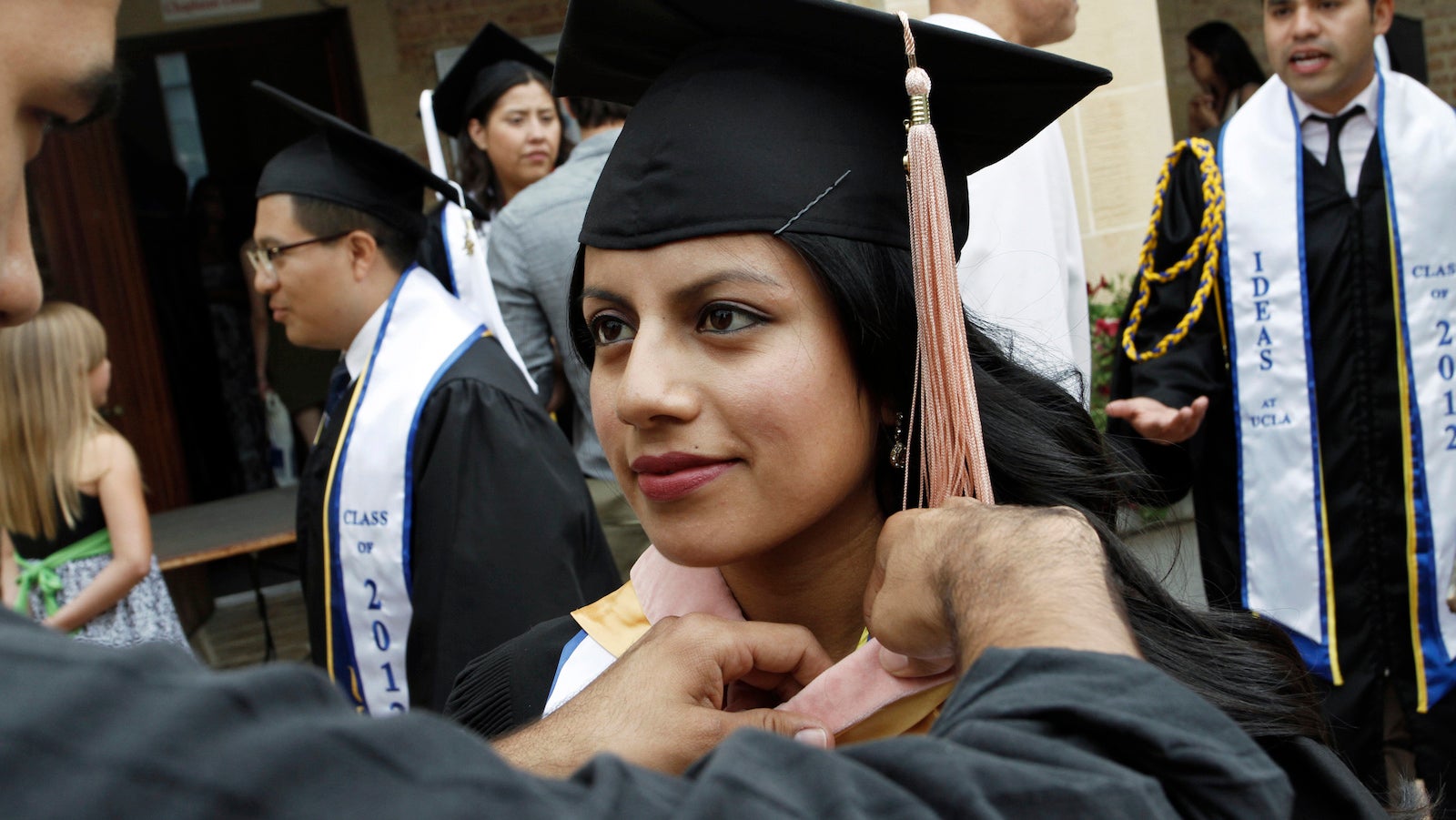Coursera is offering a way to get a real master’s degree for a lot less money
Digital learning company Coursera, which has over 15 million people around the world taking its massive online open courses (MOOCs), markets itself to a wide demographic— from curious middle schoolers to mid-career professionals seeking promotions at work.


Digital learning company Coursera, which has over 15 million people around the world taking its massive online open courses (MOOCs), markets itself to a wide demographic— from curious middle schoolers to mid-career professionals seeking promotions at work.
The company thinks it can do more to help out the latter.
Coursera yesterday (March 30) announced a new program that curiously departs from its prior offerings: a MOOC curriculum that leads to an actual degree. Starting this fall, users will be able to earn a computer-science master’s degree in data science from the University of Illinois at Urbana-Champaign—whose computer-science graduate program is ranked fifth in the US—through a series of ”stackable” online courses on Coursera’s site.
It’s this “stackability” that’s intriguing. Users can test out the program by taking some courses for free and earning specialization certificates. Then, they’ll decide whether they want to pursue additional classes—which include direct contact with the university faculty—for the full degree, at a cost of $20,000 (less than either an on-campus degree or a traditional online degree). There’s no need to commit to anything from the start, as there is with most graduate programs physical or digital.
“The computer-science degree is quite a formidable degree, and students might be a bit unsure whether they can complete the entire sequence,” says John Hart, a University of Illinois computer-science professor. “This program helps people test the waters… It’s part of our plan to appeal to a wider audience.”
Stackable courses already exist in some vocational degree programs—but they’re rarely seen in graduate-level academia. At a time when the worth of an advanced degree is growing ever shakier, Coursera’s new model might prove appealing both to people looking for cheaper ways to improve their job prospects and universities looking to attract more students. It might also appeal to employers, since the flexibility of its online format means workers won’t need to take years off to go back to school.
Coursera’s new program won’t necessarily displace existing graduate programs, though. While research does show that a graduate degree in computer science can yield a $30,000 salary bump—and data science has also been dubbed the “sexiest career of the 21st century”—many employers still like to see brick-and-mortar degrees over online ones. And, at $20,000, Coursera’s new program is cheap but not that cheap.
Yet the company is optimistic, and even expects to launch similar programs in the near future. “There’s a template of what an online degree is, and people tend to gravitate naturally to it,” Daphne Koller, Coursera’s president and co-founder, said. “Most people don’t really think outside the box.” Coursera’s new venture puts it squarely outside of the lines of traditional education; soon we’ll see whether any other players decide to follow.